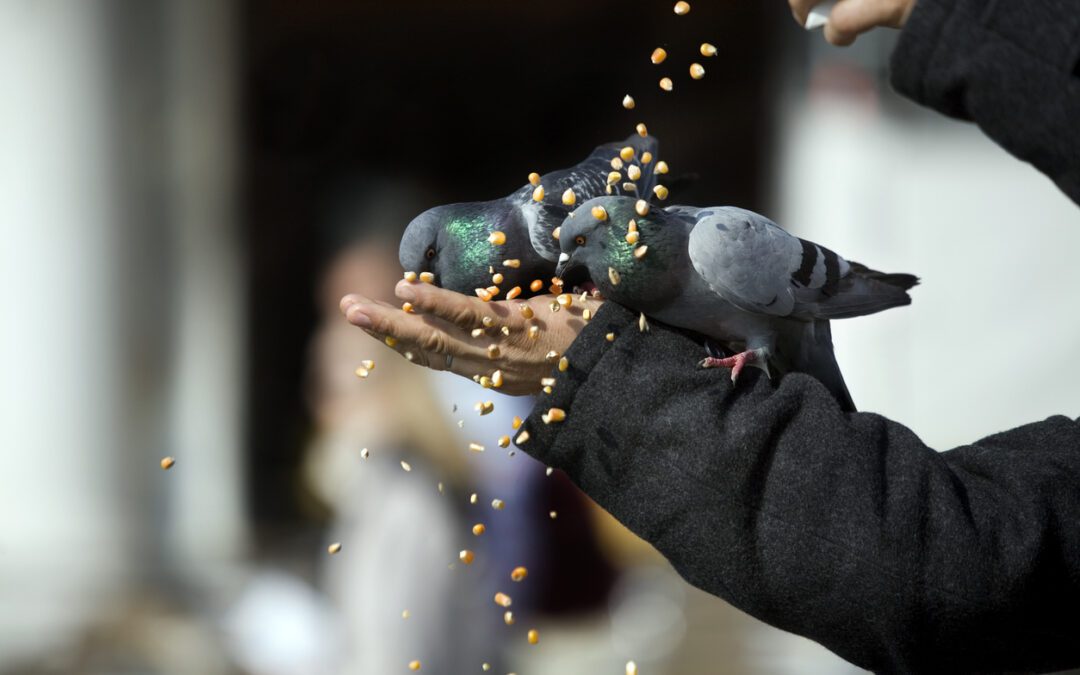
by Pigeon Patrol | Sep 25, 2024 | Bird Netting, Bird Spike, Columbidae, Doves, Pigeon Spikes, Pigeons in the News, Raccoons
Pigeons are one of the few species of wild animal with which town and city dwellers have regular contact, so they are popular with a lot of people. However, the cost of cleaning their droppings from buildings and statues can be considerable and pigeon welfare can be adversely affected by overcrowding.

Bosphorus in İstanbul,Turkey.
There are many places world-wide where attempts have been made to control pigeons by culling. Culling methods have included poisoning, shooting with air rifles and trapping. However, modern scientific research (1) shows that culling is completely ineffective, as bird numbers can increase above pre-cull levels within weeks of the cull being carried out.
Why is culling promoted?
Pest control companies are fully aware that culling is ineffective but they continue to recommend this option because it ensures that they will be offered a lucrative long-term contract.
Why is culling ineffective?
In areas where culling is carried out, there will be an initial reduction in pigeon numbers. However, this effect is very short term as the population will almost certainly have returned to or even exceeded the previous level within a few weeks. This is because pigeons control their own numbers according to the food source available.
Approximately 90% of pigeons die in their first year and the main cause of death is starvation. The mortality rate of adult pigeons is very low, typically around 11% (2). Therefore when culling is carried out on a pigeon population, the vacancies left by the dead birds are quickly filled by young birds.
This means that killing adult pigeons in a flock discriminates in favour of young birds who would otherwise have perished. It has no long-term effect on the level of population, as it merely rejuvenates the flock.
A culling programme was carried out in Basel, Switzerland; a city which had a population of approximately 20,000 pigeons. From 1961-85, 100,000 pigeons were culled by shooting and trapping. Despite this, the population remained stable.
In 1988 a group called Pigeon Action was founded to establish an ecological and long term solution to the city’s pigeon issue. They began a programme of public education campaigns which warned against feeding pigeons and installed pigeon lofts from which eggs were removed. As a result, the population was halved within four years.
Other arguments against culling
Culling is an extremely expensive option, as a long-term contract with pest controllers will have to be entered into because regular repeat culls will be necessary. Culling by poison puts other species at risk because it is both indiscriminate and because poisoned birds will affect other animals in the food chain. Cats and birds of prey may consume poisoned pigeons with fatal results.
Narcotics have been used to stupefy pigeons and make them easier to catch. However, this culling method can have disastrous consequences, with drugged birds disrupting traffic and smashing into buildings. This happened in Perth, Australia in 1999. Narcotics and poison are both very inhumane as the pigeons taking the bait will die slowly and may suffer dehydration and hypothermia.
Shooting is a widely-used culling method which also results in suffering as the majority of birds shot are wounded, rather than killed. There have been many reports of injured birds being thrown into bin bags or stamped upon by pest control operatives. Young chicks are also left to slowly perish.
Trapping of pigeons is also widespread. Apart from the risk that trapped birds are sometimes left to die from exposure, this culling method is also very time-consuming and expensive.
What are the alternatives?
There are three approaches to pigeon control which do not involve culling. They are the use of deterrents, the installation of artificial nesting sites and public education campaigns.
Deterrents
Deterrents such as spikes, holograms of owls’ eyes and wire systems can be very effective at preventing pigeons from roosting on buildings.
Netting is often used on buildings, but it can result in young flightless birds being trapped behind it and flying birds can become tangled and injured. The RSPCA and wildlife groups receive thousands of reports every year of pigeons and other birds trapped by netting.
Trained raptors (birds of prey) have been used in some areas to drive away pigeons. These birds are trained to chase, but not kill pigeons and can successfully drive a flock elsewhere. In some enclosed sites, such as railway stations, the use of raptors can be extremely effective. However, this method is expensive and will only work on a specific site, so is unsuitable for large areas.
The use of falconry to control pigeons involves pigeons being caught and killed. Nottingham City Council tried this method in 1999 but the sight of pigeons being attacked by the bird resulted in public distress, lots of negative publicity and cost thousands of pounds, whilst having no overall effect on pigeon numbers.
The problem with all deterrent methods is that the pigeons driven away from one site will simply re-locate to another, equally unsuitable site. Therefore, this form of control has limited use unless employed in conjunction with other methods.
Artificial Nesting Sites
Dovecotes or nesting boxes can be constructed and installed for a low, one-off cost. Once the pigeons have been encouraged to roost in these sites, their eggs can be collected regularly and destroyed. This is a simple, fast and very effective way to reduce pigeon numbers. It is also humane, as no killing is involved. Another advantage of dovecotes or nesting boxes is that they provide a way to move pigeon flocks away from sites where they are considered a nuisance to sites where they will pose no problems. Designated feeding areas can then be set up for public use.
Public Education Campaigns
The only effective long-term method of reducing pigeon populations is to manipulate their environment in such a way that they can no longer eat or roost easily. Each breeding pair can produce up to ten chicks per year if they have an abundant food supply, but if available food is reduced, their breeding rate slows down and can even stop altogether.
Large numbers of people regularly feed pigeons in the belief that they are caring for the birds. Litter also provides an abundant food supply to pigeons in towns and cities. As the mortality rate of adult pigeons is so low, there is strong competition for food and breeding sites.
Pigeon overpopulation is caused by large quantities of food being provided by the public. Therefore, it is essential to educate people to either stop feeding pigeons or to do so in designated areas near artificial nesting sites.
In Basel, Pigeon Action embarked on a campaign to convince the public that feeding pigeons harms them, as it causes overpopulation. They produced leaflets and posters and distributed them widely. These featured pictures of baby pigeons infected by diseases and pushed the point that overcrowding is bad for pigeons as well as people.
A successful publicity campaign will result in a large reduction in people feeding pigeons and will impose a very effective limit to their population size. Sheffield City Council produced colour leaflets which explained clearly to people why they should stop feeding pigeons. Leaflets such as these, together with signs in the relevant places should ensure that the message gets through.
Case studies
Nottingham City Hospital
Following a visit from Guy Merchant of PICAS in May 2000, the hospital suspended lethal culling of pigeons.
An on-site pest controller was employed, who proofed many sensitive areas and installed nest boxes on several large flat roofs which were heavily populated by pigeons. These were made from recycled staff lockers. The pigeons were then provided with food, water and nesting materials near the boxes in order to encourage the birds to roost there. The pest-controller visited these roosting sites daily in order to remove eggs. Hatchlings were left alone.
The result: “The impact on the trust has been dramatic. In less than a year, the bird population has reduced by an estimated 50%. The cost of cleaning fouling has also reduced significantly.” Statement made in March 2001 by Clive Young, Environmental Services Manager at Nottingham City Hospital NHS Trust.
Barking and Dagenham District Council
As a result of public pressure, this Council decided to explore alternatives to culling pigeons. A colour leaflet was produced which urged the public not to feed pigeons and to dispose of food litter properly.
Council properties, including high-rise flats were proofed in order to reduce the potential breeding sites available to the pigeons. In July 2000 a dovecote was opened in the park which had been identified as the main public feeding site. This generated a lot of very positive publicity.
This Council took some very positive action to reduce pigeon numbers, but their dovecote was designed with aesthetic appearance as the priority, rather than its attractiveness to pigeons and many nearby buildings were not proofed.
Railtrack
Railtrack abandoned culling at London mainline stations in 1999 and began to employ the services of a trained raptor and handler, as advised by PICAS. This proved extremely successful and other train operators are now exploring this option.
Summary
Lethal control of pigeons by culling has been consistently shown to have no long-term effect on population levels. It is also expensive, inhumane and can result in very negative publicity. Extensive research and recent case studies have shown that the use of artificial breeding sites, combined with egg removal, proofing of buildings and public education campaigns can result in a long term reduction of pigeon populations by as much as 50% within months. These control methods are humane, cost-efficient and will generate positive publicity.
The feral pigeon is descended from the rock dove whose natural habitat is cliffs and caves. Large buildings and statues offer pigeons roosting sites which closely resemble these. This, combined with their resourcefulness, tendency to scavenge and lack of territorial aggression has led to large flocks of pigeons living in close proximity with people.
Although it is widely believed that pigeons carry and spread diseases to people, there is very little evidence that pigeons jeopardise human health. (3) Pigeon lung disease is an allergic reaction which affects some people who have prolonged contact with pigeons in confined places. It is easily treated if diagnosed early and can be avoided by wearing a mask if in contact with pigeons in a dusty environment.
Pigeon Patrol
Pigeon Patrol Products & Services is the leading manufacturer and distributor of bird deterrent (control) products in Canada. Pigeon Patrol products have solved pest bird problems in industrial, commercial, and residential settings since 2000, by using safe and humane bird deterrents with only bird and animal -friendly solutions. At Pigeon Patrol, we manufacture and offer a variety of bird deterrents, ranging from Ultra-flex Bird Spikes with UV protection, Bird Netting, 4-S Bird Gel and the best Ultrasonic and audible sound devices on the market today.
Canada’s top wholesaler for bird deterrent products for twelve consecutive years.
Contact us at 1- 877– 4– NO-BIRD, (604) 585-9279 or visit our website at https://www.pigeonpatrol.ca/
Bird Gone, Pigeon Gone, Pigeon problems, pigeon spikes, 1-877-4NO-BIRD, 4-S Gel, Bird Control, Pigeon Control, bird repellent, Bird Spikes, sonic bird repellent, stainless steel bird spikes, bird spikes Vancouver, Ultra Sonic Bird Control, Bird Netting, Plastic Bird Spikes, Canada bird spike deterrents, Pigeon Pests, B Gone Pigeon, Pigeon Patrol, pest controller, pest control operator, pest control technician, Pigeon Control Products, humane pigeon spikes, pigeon deterrents, pigeon traps, Pigeon repellents, Sound & Laser Deterrents, wildlife control, raccoon, skunk, squirrel deterrent, De-Fence Spikes, Dragons Den, Pigeon, Pigeon Patrol, Pigeons Roosting, Vancouver Pigeon Control, Bird Spikes, Bird Control, Bird Deterrent, Pigeon Deterrent, Surrey Pigeon Control, Pest, Seagull deterrent Vancouver Pigeon Blog, Birds Inside Home De-fence, Pigeon Nesting, Bird Droppings, Pigeon Dropping, woodpecker control, Keep The Birds Away, Birds/rats, seagull, pigeon, woodpecker, dove, sparrow, pidgeon control, pidgeon problem, pidgeon control, flying rats, pigeon Problems, bird netting, bird gel, bird spray, bird nails, bird guard, Pigeon control, Bird deterrents, Pigeon deterrents, Bird control, solutions, Pigeon prevention, Pigeon repellent, Bird proofing, Pest bird management, Pigeon spikes, Bird netting, Humane bird control, Bird exclusion, Urban bird control, Anti-roosting devices, Pigeon removal, Bird barriers
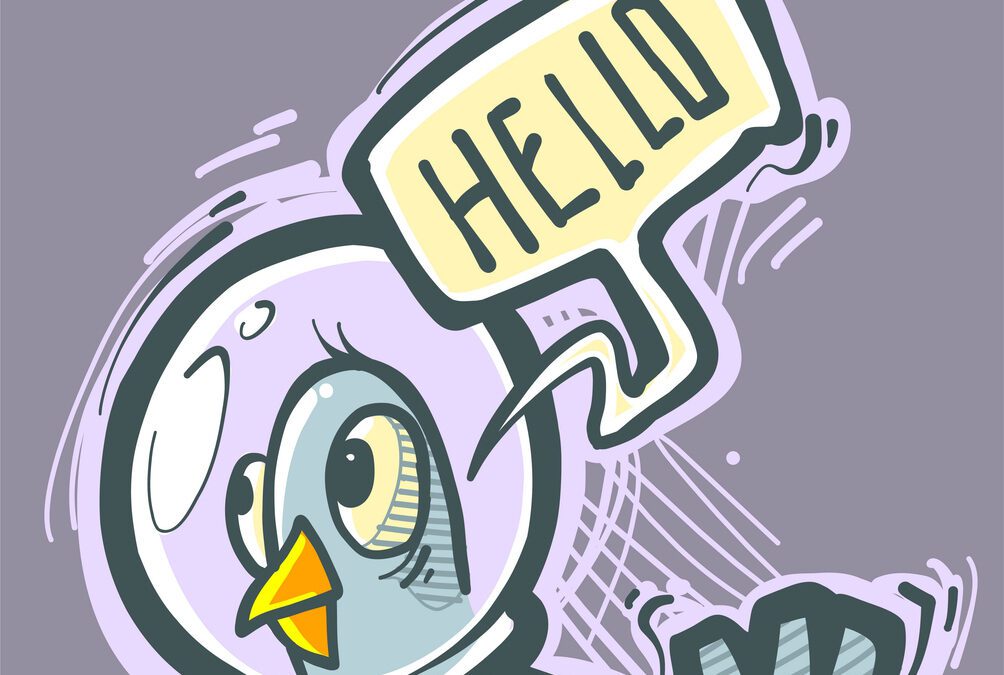
by Pigeon Patrol | Sep 25, 2024 | Bird Deterrent Products, Bird Netting, Bird Spike, Bird Spikes, Pigeons, Pigeons in the News
In a messy but unsuccessful war against pigeons on city buildings, Denver has tried highfrequency sirens, electrified toe strips and an anti-perching product called Hot Foot. But now city officials think they finally have found a weapon that works: hallucinogenic chemicals.
For the past year, the city has been feeding pigeons corn laced with a substance called Avitrol, which sends birds into convulsions, sometimes fatal, that scare away the rest of the flock.
With so many pigeons on bad trips, city workers say it’s the first time in memory that people can walk without fear of plops from the ledges, windowsills and outcroppings of the ornate City and County Building and Greek Theater.

Hand-drawn funny cute illustration – Curious pigeons.
The acidity in pigeon droppings had become such a potent problem that the city is spending $100,000 this summer to power-wash bird scat from buildings around Civic Center.
“It got to the point where you felt like you needed ski goggles to look up at the City and County Building,” said John Hall, manager of public office buildings for Denver. “Pigeons are urban vermin.”
Though the same Avitrol chemical also is being used against pigeons at Coors Field, St. John’s Episcopal Cathedral and Rose Medical Center, not everyone is convinced it’s the No. 1 solution to the No. 2 problem.
Just a few blocks across Civic Center, state maintenance workers worry that Denver Mayor Wellington Webb merely is scattering pigeons from his building to do their business on the state Capitol.
And animal-rights activists are aghast.
“It takes 40 pigeons pooping all day in one place to equal what a dog leaves on my lawn in one drop,” said Catherine Hurlbutt, 87, who has rescued and nurtured hundreds of injured birds at her south Denver home. “You’re not supposed to say a bad word about dogs, but people think it’s OK to poison pigeons.”
When New York City residents started using Avitrol on pigeons, Grace Slick, the famed Jefferson Airplane singer of the ’60s drug anthem “White Rabbit,” protested to Mayor Rudy Giuliani in a letter.
“I have considerable experience on the subject of mind-altering drugs, and I can tell you that Avitrol is not your run-of-the-mill hallucinogen,” Slick wrote. “It causes violent shaking, trembling, thirst, nausea, convulsions, disorientation and a slow death. Wow, talk about a bad trip!”
Last year, the New York State Assembly passed a bill allowing cities to ban Avitrol, but Gov. George Pataki, heeding a request from Giuliani, vetoed the bill.
All the flap is over a 1-pound bird that was native to Europe but brought to North America in the 1600s.
Supporters call them rock doves, which mate for life and feed milk to their young, and note that their homing ancestors helped in World War II by transporting spy messages. Detractors liken them to rats and cockroaches that carry diseases and dive-bomb passers-by with fecal glop.
Denver has struggled for decades to keep Downtown pigeons under control. When workers put spikes on building ledges to keep pigeons from roosting, the birds simply built nests atop them and enjoyed air-cooled nests in the summer. When workers tried a chemical spread called Hot Foot, birds built new nests and enjoyed warmer roosts for the winter.
When world leaders visited Denver for the Summit of the Eight in 1997, city workers installed electrified wires atop ledges favored by pigeons at Civic Center’s outdoor Greek Theater. The wires suffered from frequent short-circuits.
High-frequency radio speakers were supposed to drive the pigeons batty, but the birds ended up perching atop them anyway.
City officials said their war against pigeons seemed lost – until Denver hired the Pigeon Man.
The latest owner of a 47-year-old family business called Bird Control, Doug Stewart said Avitrol is one of his most effective tools against pigeons. When he started working for Denver a year ago, the City and County Building was home to hundreds of pigeons.
But with a $250-a-month city contract, Stewart started sprinkling Avitrol-laced corn on the roof of city hall. Recently, Stewart scrambled across the roof of the four-story building with his monthly dosage of bait in his backpack.
While the rooftop view of the Rocky Mountains to the west and the state Capitol to the east was magnificent, Stewart was most proud of something he didn’t see.
There were few birds, or fresh droppings, anywhere.
So he laid down a few small piles of Avitrol-laced corn, which costs him $50 a pound, and talked about a job that has taken him across the rooftops of the city, from Lakeside Mall to the steeple at St. John’s Episcopal Cathedral – and some truly disgusting abandoned apartment buildings in-between.
“I get asked all the time: Am I killing pigeons?” Stewart said. “There’s no way in the world I want any dead pigeons. I want to keep them fat, happy and on the move. It’s good for my business.” According to the government-approved warning label, Avitrol is a “poison with flock-alarming properties, used for the control of feral pigeons in, on, or in the area of structures, feeding, nesting, loafing and roosting sites, in such a way that a part of the flock may react and frighten the rest away. Birds that react and alarm a flock usually die.”
Scientific studies show the chemical temporarily alters brain waves and throws the bird into spasms and convulsions. When an Ontario, Canada, environmental official banned the use of non-humane vertebrate pesticides in 1975, a team of University of Ottawa researchers concluded that Avitrol “appears to be humane based on scientific evidence.”
“Upon eating the active ingredient of Avitrol in a corncob base, the birds begin to flap wings, vocalize and convulse,” said the study led by pathologist Henry Roswell.
“Other birds seeing this activity in their colleagues become alarmed and fly away to another area.” Critics of the use of bird repellants such as Avitrol claim that their use merely shifts birds from one area to another.
“Avitrol is not intended to kill birds. However, some do die, although the numbers are minimal in comparison to the hundreds that make up the flock,” Roswell said.
Death-rate estimates range from 1 percent to 20 percent of pigeons consuming Avitrol.
Meanwhile, workers at the Colorado Capitol wonder whether the city is dropping its pigeon problem on the state. In the past year, state workers have installed five special anti-pigeon Plexiglas barriers – at a cost of $300 each – on ledges above the Capitol’s west steps. When told Denver has been using a chemical that may be moving city birds to the state Capitol, state central services director Rick Malinowski said, “Thanks a lot! We may have to retaliate.”
City workers fear the consequences. At the city’s Greek Theater, maintenance worker Ray Martinez set down his coffee cup one morning on an outdoor step before walking inside an office.
When he returned to his coffee cup a few minutes later, he saw something that jolted him awake.
“I was ready to take a sip and I looked down and thought, “Hey, what’s going on here? I take my coffee black!’
” Martinez said. “I was so mad I threw my cup at that bird.”
Pigeon Patrol
Pigeon Patrol Products & Services is the leading manufacturer and distributor of bird deterrent (control) products in Canada. Pigeon Patrol products have solved pest bird problems in industrial, commercial, and residential settings since 2000, by using safe and humane bird deterrents with only bird and animal -friendly solutions. At Pigeon Patrol, we manufacture and offer a variety of bird deterrents, ranging from Ultra-flex Bird Spikes with UV protection, Bird Netting, 4-S Bird Gel and the best Ultrasonic and audible sound devices on the market today.
Canada’s top wholesaler for bird deterrent products for twelve consecutive years.
Contact us at 1- 877– 4– NO-BIRD, (604) 585-9279 or visit our website at https://www.pigeonpatrol.ca/
Bird Gone, Pigeon Gone, Pigeon problems, pigeon spikes, 1-877-4NO-BIRD, 4-S Gel, Bird Control, Pigeon Control, bird repellent, Bird Spikes, sonic bird repellent, stainless steel bird spikes, bird spikes Vancouver, Ultra Sonic Bird Control, Bird Netting, Plastic Bird Spikes, Canada bird spike deterrents, Pigeon Pests, B Gone Pigeon, Pigeon Patrol, pest controller, pest control operator, pest control technician, Pigeon Control Products, humane pigeon spikes, pigeon deterrents, pigeon traps, Pigeon repellents, Sound & Laser Deterrents, wildlife control, raccoon, skunk, squirrel deterrent, De-Fence Spikes, Dragons Den, Pigeon, Pigeon Patrol, Pigeons Roosting, Vancouver Pigeon Control, Bird Spikes, Bird Control, Bird Deterrent, Pigeon Deterrent, Surrey Pigeon Control, Pest, Seagull deterrent Vancouver Pigeon Blog, Birds Inside Home De-fence, Pigeon Nesting, Bird Droppings, Pigeon Dropping, woodpecker control, Keep The Birds Away, Birds/rats, seagull, pigeon, woodpecker, dove, sparrow, pidgeon control, pidgeon problem, pidgeon control, flying rats, pigeon Problems, bird netting, bird gel, bird spray, bird nails, bird guard, Pigeon control, Bird deterrents, Pigeon deterrents, Bird control, solutions, Pigeon prevention, Pigeon repellent, Bird proofing, Pest bird management, Pigeon spikes, Bird netting, Humane bird control, Bird exclusion, Urban bird control, Anti-roosting devices, Pigeon removal, Bird barriers
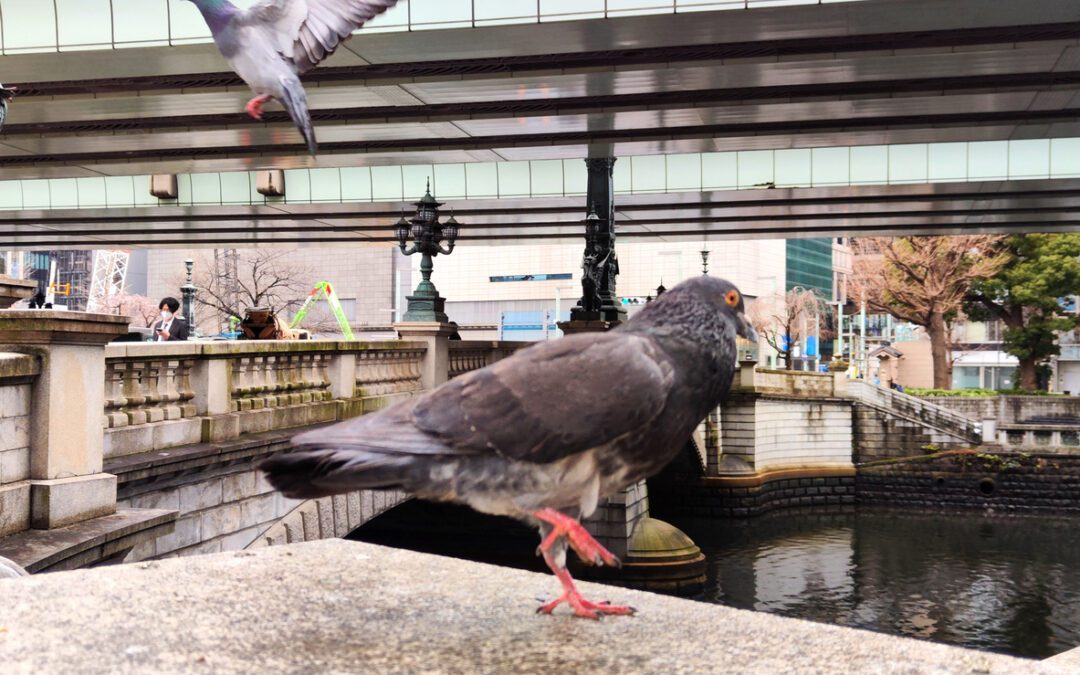
by Pigeon Patrol | Sep 19, 2024 | Bird Spike, Pigeons in the News, UltraSonic Bird Control
The people of Toronto are fed up with pigeons. The birds crowd around subway stations, overload balconies with poop, and build their flammable nests in hazardous places. The city has tried trapping and relocating them, scaring them away with falcons, and even debated imposing a feeding ban. Nothing has worked.
The latest tactic? Giving the birds food laced with birth control.
Toronto is far from the only city dealing with pigeon problems. Adaptable and prolific, Rock Pigeons are extremely common—and often despised. City health and sanitation departments caution that pigeon droppings can damage buildings and historic landmarks, and their nests can cause fires on train tracks. This has prompted culling, trapping, or poisoning programs, but pigeon numbers keep bouncing back, pushing some civic leaders to seek more creative solutions.
Now Toronto is placing its bet on a form of avian birth control called nicarbazin. Nearly a year ago, the animal control department deployed four feeders around the city that automatically dispense nicarbazin-infused wheat pellets at a set time each day. The pilot program aims to reduce the metropolitan pigeon population by 50 percent annually—and results are set for release later this summer.
Nicarbazin was originally developed in the 1950s to treat a poultry disease called coccidiosis. But the drug came with a curious side effect: It made hens lay infertile eggs. The compound pokes holes in the membrane around the yolk, and so the embryo can’t develop, says Christi Yoder, a former wildlife biologist who helped conduct early research on the contraceptive capabilities of nicarbazin in the early 2000s. The drug was first tested in the laboratory with chickens and domestic Mallards, and then later in the field on nuisance Canada Geese, both scenarios where nicarbazin performed quite well, Yoder says.
For pigeons, however, the results have been mixed. The drug has had some success, especially with smaller pigeon populations confined to areas like industrial lots or small towns. But the right conditions need to align for nicarbazin to do its job. Pigeons can be conditioned to return to the same places at the same time each day, but ensuring that the birds eat the necessary dose isn’t always guaranteed, especially when other food is available. And if a bird stops consuming the drug for a few days, its fertility will return to normal. “You gotta be taking this stuff consistently for it to work,” says Erick Wolf, CEO of Innolytics, LLC, which sells nicarbazin under the brand name OvoControl, including for Toronto’s pilot.
If a bird stops consuming the drug for a few days, its fertility will return to normal.
That fickleness makes nicarbazin especially challenging to use effectively in cities. A 2022 study in Barcelona found that, while the drug reduced some pigeon colonies by about 55 percent over 3 years, other colonies appeared unaffected. This is likely because of humans. In areas where people feed pigeons, the birds may not always eat the birth-control bait, says Carlos González-Crespo, the lead author of the paper who is currently a researcher at University of California Davis. A separate study on nicarbazin in Barcelona also found that the drug had little effect on the overall population of pigeons across the city, likely because of these confounding human factors.
Giving pigeons birth control also seems to merely stabilize populations rather than decrease them, says Nadia Xenakis, a biologist at BC SPCA who led a year-long study in 2019 on a pilot program in Vancouver. That’s because contraception impacts fertility but not survival. A pigeon’s typical lifespan is two to seven years, so bringing down the numbers solely using nicarbazin can be a waiting game, she says. And for the duration, feeders must be monitored to make sure that pigeons are eating enough for a proper dose and cleaned regularly so they don’t attract rats and other pests. (Nicarbazin poses little risk to those animals, Wolf says, because of its specific effect on bird eggs and its daily dosage requirement.)
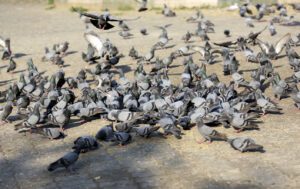
Flock of Pigeons crowded on the floor outdoor landscape close up.
All of which raises the question: With its many uncertainties, is birth control the most effective way to reduce urban pigeon populations? The answer, experts agree, is no; stopping people from feeding the birds would likely have a bigger impact. “Many studies for urban pigeons are like, if you’re just reducing the food available to them, their populations will reduce by 50 percent before you even try contraceptives,” says Page Klug, a U.S. Department of Agriculture biologist who led a recent review paper on avian contraceptives.
The problem is that human behavior is difficult to manage. González-Crespo recalls how challenging it was to stop city residents from feeding pigeons for his study, since they thought that they were doing a good deed. In reality, feeding the birds can harm them, he says, by leading to overcrowding and unsanitary conditions.
Indeed, it was opposition to a feeding ban that ultimately led Toronto to try the approach the press has dubbed “planned pigeonhood.” Although the program’s impact won’t be clear until the summer, the city recently added a fifth birth control dispenser in a new location. Officials are also encouraging residents to seal off food sources and potential nesting nooks. Pigeon problems can’t be solved with contraceptives alone, González-Crespo says. “You cannot expect wonders from doing just one thing.”
Pigeon Patrol
Pigeon Patrol Products & Services is the leading manufacturer and distributor of bird deterrent (control) products in Canada. Pigeon Patrol products have solved pest bird problems in industrial, commercial, and residential settings since 2000, by using safe and humane bird deterrents with only bird and animal -friendly solutions. At Pigeon Patrol, we manufacture and offer a variety of bird deterrents, ranging from Ultra-flex Bird Spikes with UV protection, Bird Netting, 4-S Bird Gel and the best Ultrasonic and audible sound devices on the market today.
Canada’s top wholesaler for bird deterrent products for twelve consecutive years.
Contact us at 1- 877– 4– NO-BIRD, (604) 585-9279 or visit our website at https://www.pigeonpatrol.ca/
Bird Gone, Pigeon Gone, Pigeon problems, pigeon spikes, 1-877-4NO-BIRD, 4-S Gel, Bird Control, Pigeon Control, bird repellent, Bird Spikes, sonic bird repellent, stainless steel bird spikes, bird spikes Vancouver, Ultra Sonic Bird Control, Bird Netting, Plastic Bird Spikes, Canada bird spike deterrents, Pigeon Pests, B Gone Pigeon, Pigeon Patrol, pest controller, pest control operator, pest control technician, Pigeon Control Products, humane pigeon spikes, pigeon deterrents, pigeon traps, Pigeon repellents, Sound & Laser Deterrents, wildlife control, raccoon, skunk, squirrel deterrent, De-Fence Spikes, Dragons Den, Pigeon, Pigeon Patrol, Pigeons Roosting, Vancouver Pigeon Control, Bird Spikes, Bird Control, Bird Deterrent, Pigeon Deterrent, Surrey Pigeon Control, Pest, Seagull deterrent Vancouver Pigeon Blog, Birds Inside Home De-fence, Pigeon Nesting, Bird Droppings, Pigeon Dropping, woodpecker control, Keep The Birds Away, Birds/rats, seagull, pigeon, woodpecker, dove, sparrow, pidgeon control, pidgeon problem, pidgeon control, flying rats, pigeon Problems, bird netting, bird gel, bird spray, bird nails, bird guard, Pigeon control, Bird deterrents, Pigeon deterrents, Bird control, solutions, Pigeon prevention, Pigeon repellent, Bird proofing, Pest bird management, Pigeon spikes, Bird netting, Humane bird control, Bird exclusion, Urban bird control, Anti-roosting devices, Pigeon removal, Bird barriers
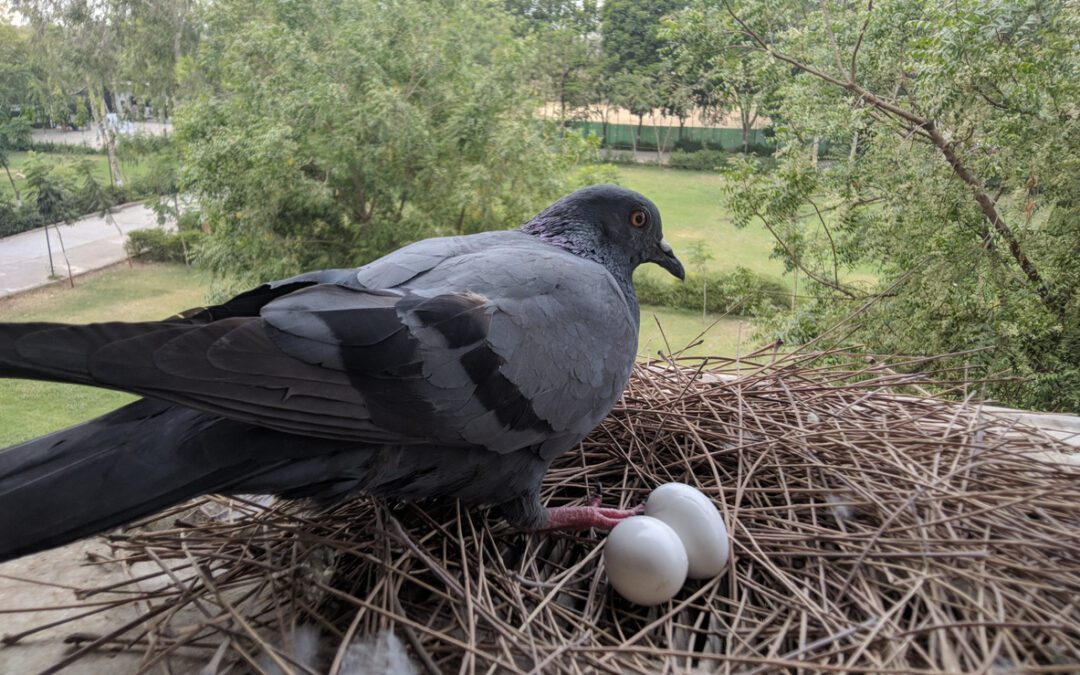
by Pigeon Patrol | Sep 19, 2024 | Bird Spike, Pigeons, Sparrows
Homing pigeons with their cryptic inborn GPS systems have been reliably delivering messages for at least three millennia. Pigeons announced the winners of ancient Olympiads. They delivered military messages for Genghis Khan and were the first to reach England with the outcome of the Battle of Waterloo. They’ve brought home the mail in war and peace. Many were awarded medals for distinguished service in World Wars One and Two.2 (No less amazing, of course, are the enormous migratory feats of other birds, but homing pigeons are easier to study because they travel on cue and not in response to the seasons.)
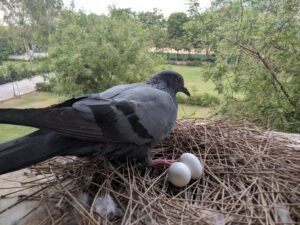
Pigeon With Egg in the nest photography. Birds Photography. Pigeon Hatching Eggs
And while “the magnetic sense of pigeons provides an excellent compass for orientation,” writes Hagstrum, “the geomagnetic field makes a poor map.”
Homing pigeons likely rely on a number of sensory cues to find their way home. While vision may be valuable locally, birds with frosted contact lenses manage to arrive after long trips to within 500 meters of their destination, so sight doesn’t seem to be the key.3 And while “the magnetic sense of pigeons provides an excellent compass for orientation,” writes Hagstrum, “the geomagnetic field makes a poor map.”4
The June 1997 pigeon disaster was one of four pigeon races disrupted in 1997 and 1998 in Europe and the northeastern United States. The only common element, as Hagstrum reported back in the year 2000, was the intersection of the racecourses with the path of an accelerating Concorde supersonic transport.5 This finding supported the idea that pigeons don’t achieve their precision long-distance navigation through reliance on vision or the earth’s magnetic field, since sonic booms disrupt neither. Yet the question remained: how do sonic booms disturb the birds’ natural abilities?
Hagstrum said, “When I realized the birds in that race were on the same flight path as the Concorde, I knew it had to be infrasound.” Infrasound is extremely low frequency sound generated by deep ocean waves. These waves cause tiny vibrations of planetary surfaces and atmosphere, called microseisms and microbaroms, respectively. Because of variations in terrain, infrasonic characteristics can form a map of the landscape.
Hagstrum’s latest study, published 15 February 2013 in the Journal of Experimental Biology, sorted through data on pigeon flights in upstate New York between 1968 and 1987 and confirmed that sonic boom disruption of the “sounds of silence” was likely responsible for the 1997 loss of over 60,000 trained birds. Moreover, his study represents a major piece for the how-birds-navigate puzzle.
The New York birds were part of a Cornell University experimental program. For nearly two decades researchers recorded that birds released from one of three standard sites—Jersey Hill—generally failed to make it home. Those from the other sites could find their way. Only once in those two decades did the Jersey Hill birds make it home to Cornell: on August 13, 1969. Meteorological records demonstrated that the area on that day experienced a temperature inversion. Hagstrum believes, based on acoustic modeling, that the terrain of the path between Jersey Hill and Cornell normally creates a “sound shadow,” obscuring the home loft by directing the infrasonic signals associated with it high into the atmosphere. On the one good day, differing atmospheric conditions would have made the infrasonic signals detectable to birds from Jersey Hill.6
Hagstrum believes that infrasonic signals from a home loft normally act like a homing beacon for birds to get their bearings as they orient using other signals such as the sun or stars, the earth’s magnetic field, and visual or olfactory clues.7 Ill-timed sonic booms, earthquakes, and terrain that coincidentally misdirects the sound waves as they propagate through the air all have the potential to disrupt infrasonic signals that normally bring these birds home.
You may listen to these subtle sounds yourself in amplified recordings from the University of Hawaii Infrasound Laboratory.8 As you listen, marvel at the ways God designed for birds to find their way using an earthward-directed GPS-like system for more than 6,000 years since creation.
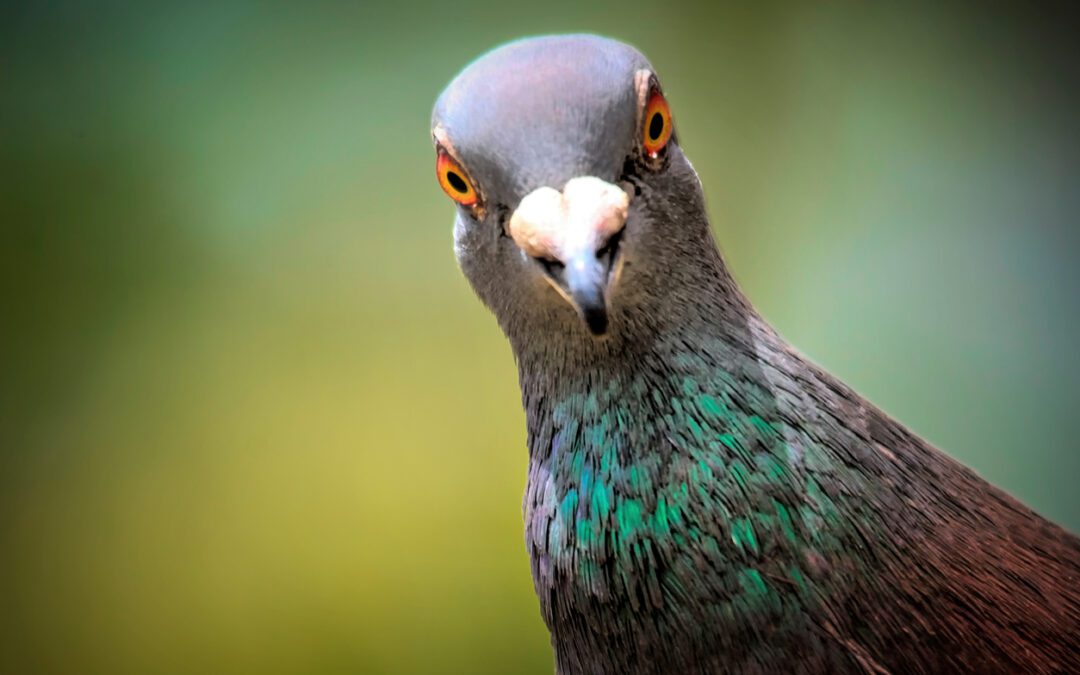
by Pigeon Patrol | Sep 19, 2024 | Bird Spike, Pigeon Predators, Pigeon Spikes
I LIKE pigeons. Their voices are soft and rhythmic. I have put up baskets for them in the front verandah and they live there quietly. They don’t ask for food – probably because they are fed at the roundabout near my house by compassionate people who come from far to drop grains for them every day. I have a bird table of rice and fruit so they can feed there whenever they want.
The Mumbai Municipal Commissioner has made it the feature of his (hopefully brief) tenure that he will get rid of the pigeons from Mumbai. Those who go looking for something to hate and often pick on pigeons should know what they have done for us humans over the years.
The first airmail using pigeons was established in 1896 in New Zealand and was known as the Pigeon-Gram Service. Their speed averaged 77.6 mph, only 40% slower than a modern aircraft. Each pigeon carried 5 messages and special Pigeon-Gram stamps were sold for each message carried.
In the First World War, pigeons were used extensively for carrying messages. German marksmen were deployed to shoot the birds down. Pigeons were carried in tanks and released through tiny portholes in the side. Mine-sweeping boats carried pigeons so that in the event of an attack by a U-boat, a pigeon could be released with a message confirming the exact location of the sinking boat, often resulting in the crew being saved. Seaplanes carried pigeons to relay urgent information about enemy movements. In the Second World War, pigeons were used in active service in Europe, India and Burma.
The last pigeon messaging service in the world was in Odisha called Orissa Police Carrier Pigeon Service and it disbanded in 2006 after 60 years of active service and 800 birds. Carrier pigeons had provided daily communications between Orissa’s 400 police stations across the state. They carried essential messages during two natural disasters: the massive cyclone in 1971 and the unprecedented floods in 1982. Their ability to fly in adverse weather conditions saved many human lives.
Read Also
Impressive Voter Turnout In J&K Shows People’s Strong Trust In Democracy: Amit Shah
Influence Of Social Media On Golf’s Popularity In Post-Pandemic World
In the 5th century BC the first network of pigeon messengers is thought to have been established in Assyria and Persia by Cyrus the Great. In 2000 BC they were carrying messages to warring groups in Mesopotamia. In 53 B.C they carried Hannibal’s dispatches. Julius Caesar used pigeons during the conquest of Gaul from 58 to 51 BC. Indian and Arab merchants used carrier pigeons when visiting China. At the first Olympic Games held in 776 BC, every athlete had a homing pigeon from his village. If he won his event, his would be the bird that carried the news home.
Between 63 BC – AD 21, the Greek geographer Strabo noted that pigeons flew between certain points along the Mediterranean coastline to carry messages of the arrival of fish shoals for waiting fishermen.
The news agency Reuters originally used pigeons to disseminate news in the 1840s. Paul Julius Reuter’s pigeons only stopped when the telegram was invented. In 1870 they carried messages throughout France during the siege of Paris.
In 1915, at the start of the First Great War, two Pigeon Corps were established on the Western Front, consisting of 15 pigeon stations each with 4 birds and a handler. The Pigeon Corps was so successful that further birds were recruited, and the service expanded considerably. By the end of the war the Pigeon Corps consisted of 400 men and 22,000 pigeons in 150 mobile lofts. Messages would be put into a small canister and then attached to the pigeon’s leg. The bird would be released and would return to its loft behind allied lines, sounding a bell to confirm that it had landed. Each airfield along the coast of England had its own loft so that pigeons could be dispatched with messages in the event of invasion. Bomber crews usually carried a pair of pigeons so that in the event that the plane was shot down, the birds could be released with details of the crash site.
These birds played a major role in the Intelligence Service in the First World War. They were sent to maintain contact with resistance movements across Europe. Fewer than 10% survived the shell fire, small arms fire, poison gas.
In 1940, 300 crates of pigeons were dropped into Enemy-occupied areas of Europe, each bird being packed into a box with food for 10 days. Instructions and a questionnaire were put in the box. If found by an ally, information about enemy movement could be put inside the container on the bird’s leg and the bird released to fly back. 16,544 pigeons were parachuted into occupied Europe during the Second Great War. Only 1,842 returned.

Hand-drawn funny cute illustration – Curious pigeons.
Over 1,00,000 British pigeons lost their lives in military service. Red Cock flew back a torpedoed trawler carrying the grid reference of the sinking boat and saving the crew. In October 1918, 500 men of the 77th Infantry were trapped in Argonne, France with no food or ammunition and being bombarded by their own side. The major sent the pigeon Cher Ami with a message for rescue. The bird was shot through the breast by enemy fire and fell to the ground. She got back into the air and flew 25 miles back to Division Headquarters in 25 minutes. The men were saved. Cher Ami had delivered the message despite having been shot through the breast, blinded in one eye and with a leg hanging by only a tendon. The Dickin medal is awarded to any animal that has distinguished itself through an act of bravery in wartime. Of the 55 medals awarded to date, pigeons have been recognized 32 times- much less than they deserve because they saved the lives of lakhs of people. The American and Australian Services also used pigeons extensively and had their own pigeon units operating indifferent countries. So did Burma (Myanmar) and India.
Some years ago, the Indian army captured a pigeon carrying a message from the Pakistan army.
Pigeons were used for aerial photography. A miniature camera was mounted to the bird’s breast via a canvass harness and the pigeon sent to areas of strategic importance to capture images. The films provided information about enemy troop movements and air bases. Information relating to exact positions of the V1 flying bomb site in Peenemunde in Germany was conveyed by pigeons – information that turned the tide of the war.
In 2004 an impressive memorial to commemorate all the animals and birds killed during wartime was erected in Hyde Park. Pigeons have been given pride of place in the sculpture with two pack mules in the foreground weighed down with munitions and cannon parts.
Pigeons more than any other animal have been man’s best friend in times of crisis. They give of themselves for a just a handful of grain. You need to repay your debt every day.
Pigeon Patrol
Pigeon Patrol Products & Services is the leading manufacturer and distributor of bird deterrent (control) products in Canada. Pigeon Patrol products have solved pest bird problems in industrial, commercial, and residential settings since 2000, by using safe and humane bird deterrents with only bird and animal -friendly solutions. At Pigeon Patrol, we manufacture and offer a variety of bird deterrents, ranging from Ultra-flex Bird Spikes with UV protection, Bird Netting, 4-S Bird Gel and the best Ultrasonic and audible sound devices on the market today.
Canada’s top wholesaler for bird deterrent products for twelve consecutive years.
Contact us at 1- 877– 4– NO-BIRD, (604) 585-9279 or visit our website at https://www.pigeonpatrol.ca/
Bird Gone, Pigeon Gone, Pigeon problems, pigeon spikes, 1-877-4NO-BIRD, 4-S Gel, Bird Control, Pigeon Control, bird repellent, Bird Spikes, sonic bird repellent, stainless steel bird spikes, bird spikes Vancouver, Ultra Sonic Bird Control, Bird Netting, Plastic Bird Spikes, Canada bird spike deterrents, Pigeon Pests, B Gone Pigeon, Pigeon Patrol, pest controller, pest control operator, pest control technician, Pigeon Control Products, humane pigeon spikes, pigeon deterrents, pigeon traps, Pigeon repellents, Sound & Laser Deterrents, wildlife control, raccoon, skunk, squirrel deterrent, De-Fence Spikes, Dragons Den, Pigeon, Pigeon Patrol, Pigeons Roosting, Vancouver Pigeon Control, Bird Spikes, Bird Control, Bird Deterrent, Pigeon Deterrent, Surrey Pigeon Control, Pest, Seagull deterrent Vancouver Pigeon Blog, Birds Inside Home De-fence, Pigeon Nesting, Bird Droppings, Pigeon Dropping, woodpecker control, Keep The Birds Away, Birds/rats, seagull, pigeon, woodpecker, dove, sparrow, pidgeon control, pidgeon problem, pidgeon control, flying rats, pigeon Problems, bird netting, bird gel, bird spray, bird nails, bird guard, Pigeon control, Bird deterrents, Pigeon deterrents, Bird control, solutions, Pigeon prevention, Pigeon repellent, Bird proofing, Pest bird management, Pigeon spikes, Bird netting, Humane bird control, Bird exclusion, Urban bird control, Anti-roosting devices, Pigeon removal, Bird barriers
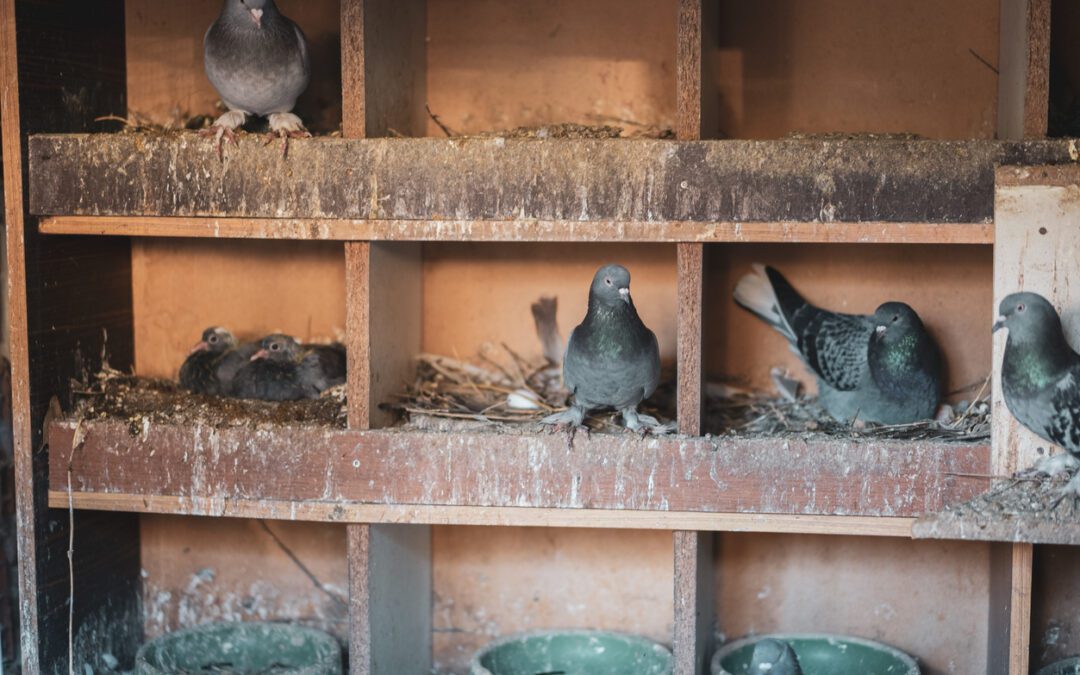
by Pigeon Patrol | Jul 9, 2024 | Animal Deterrent Products, Bird Netting, Bird Spike, Columbidae, Pigeon Spikes, Pigeons, Sparrows
Eagles and falcons deployed to scare away pigeons in Barcelona
This article is more than 3 months old Trial project aims to drive colonies causing a nuisance at Camp Nou football stadium to nearby parks
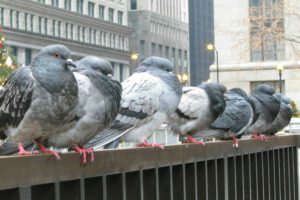
Barcelona has recruited a new weapon in its fight to keep the urban pigeon population under control: eagles and falcons.
As part of a trial, teams of three or four birds of prey have started patrolling an area around Camp Nou, FC Barcelona’s football ground, between 8am and 4pm. Pigeons nesting in the ground have been driven out by building works and have relocated to nearby blocks of flats whose residents have demanded action.
The idea is to drive the pigeons into nearby parks where they will be less of a nuisance.
“The birds can eat a few pigeons but that’s not the idea,” said Albert Tomás, a spokesperson for the company contracted to carry out the work. “Besides, a dead pigeon doesn’t learn.”
The mere sight of low-flying birds of prey was enough to unsettle the pigeons, which soon get the message that it was time to move on, said Tomás.
The pilot scheme follows the city’s failed effort to control the population of the estimated 85,000 pigeons through spiking their food with a contraceptive.
In some areas, such as the Plaça de Catalunya in the city centre, the concentration of birds is twice the recommended number.
In 2017 the city successfully used birds of prey to disperse flocks of pigeons that were damaging the roof of the Palau Sant Jordi concert hall.
Carmen Maté, responsible for animal welfare in the city, said that if the Camp Nou pilot proved successful it would be extended to other parts of Barcelona. The city is also campaigning to stop people discarding food in the street, which encourages the growth of the pigeon population.
Most Spanish airports use teams of falcons to deter bird strikes which are estimated to cost the global airline industry $1.2bn (£950,000) a year.
Barcelona airport has a team of 80 falcons, while about 70 peregrine falcons patrol Barajas airport in Madrid.
This is what we’re up against
Teams of lawyers from the rich and powerful trying to stop us publishing stories they don’t want you to see.
Lobby groups with opaque funding who are determined to undermine facts about the climate emergency and other established science.
Pigeon Patrol
Pigeon Patrol Products & Services is the leading manufacturer and distributor of bird deterrent (control) products in Canada. Pigeon Patrol products have solved pest bird problems in industrial, commercial, and residential settings since 2000, by using safe and humane bird deterrents with only bird and animal friendly solutions. At Pigeon Patrol, we manufacture and offer a variety of bird deterrents, ranging from Ultra-flex Bird Spikes with UV protection, Bird Netting, 4-S Bird Gel and the best Ultrasonic and audible sound devices on the market today.
Canada’s top wholesaler for bird deterrent products for twelve consecutive years.
Contact us at 1- 877– 4– NO-BIRD, (604) 585-9279 or visit our website at https://www.pigeonpatrol.ca/
Bird Gone, Pigeon Gone, Pigeon problems, pigeon spikes, 1-877-4NO-BIRD, 4-S Gel, Bird Control, Pigeon Control, bird repellent, Bird Spikes, sonic bird repellent, stainless steel bird spikes, bird spikes Vancouver, Ultra Sonic Bird Control, Bird Netting, Plastic Bird Spikes, Canada bird spike deterrents, Pigeon Pests, B Gone Pigeon, Pigeon Patrol, pest controller, pest control operator, pest control technician, Pigeon Control Products, humane pigeon spikes, pigeon deterrents, pigeon traps, Pigeon repellents, Sound & Laser Deterrents, wildlife control, raccoon, skunk, squirrel deterrent, De-Fence Spikes, Dragons Den, Pigeon, Pigeon Patrol, Pigeons Roosting, Vancouver Pigeon Control, Bird Spikes, Bird Control, Bird Deterrent, Pigeon Deterrent, Surrey Pigeon Control, Pest, Seagull deterrent Vancouver Pigeon Blog, Birds Inside Home De-fence, Pigeon Nesting, Bird Droppings, Pigeon Dropping, woodpecker control, Keep The Birds Away, Birds/rats, seagull, pigeon, woodpecker, dove, sparrow, pidgeon control, pidgeon problem, pidgeon control, flying rats, pigeon Problems, bird netting, bird gel, bird spray, bird nails, bird guard, Pigeon control, Bird deterrents, Pigeon deterrents, Bird control, solutions, Pigeon prevention, Pigeon repellent, Bird proofing, Pest bird management, Pigeon spikes, Bird netting, Humane bird control, Bird exclusion, Urban bird control, Anti-roosting devices, Pigeon removal, Bird barriers











